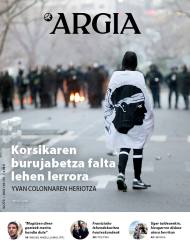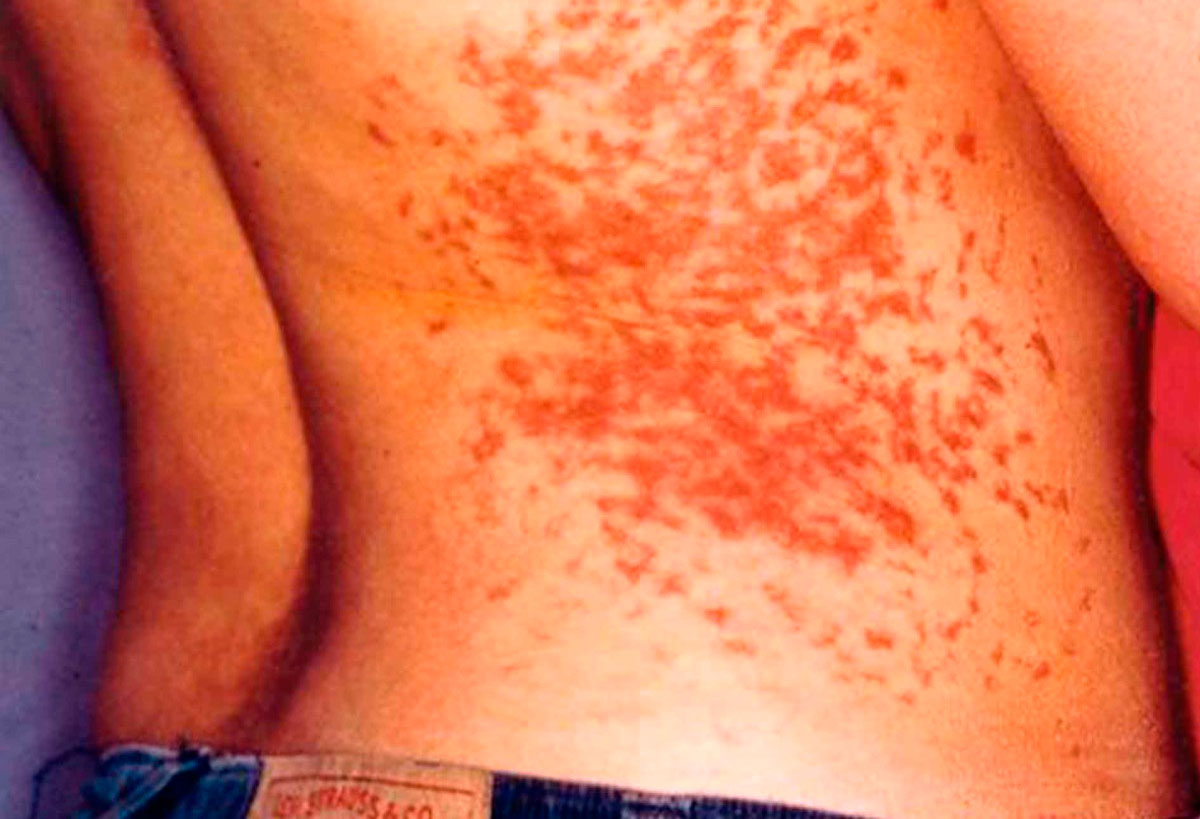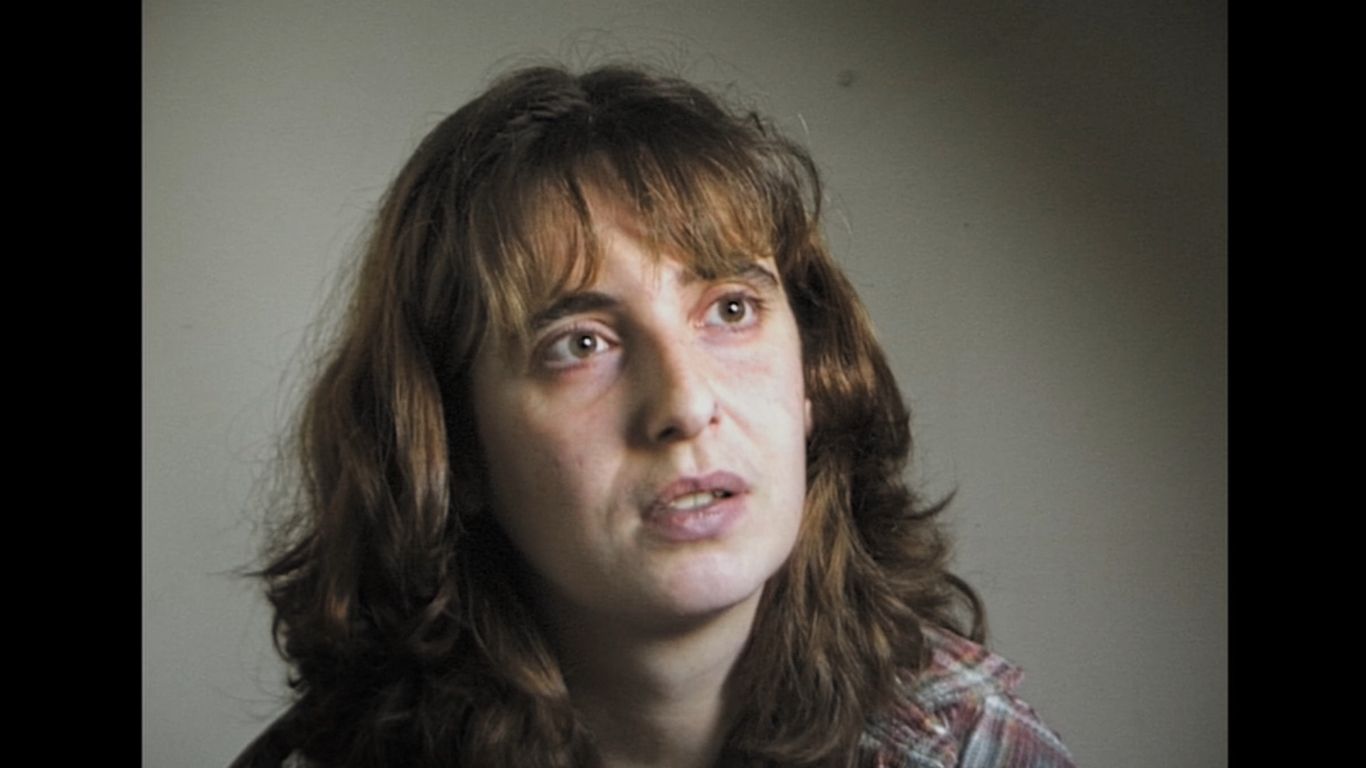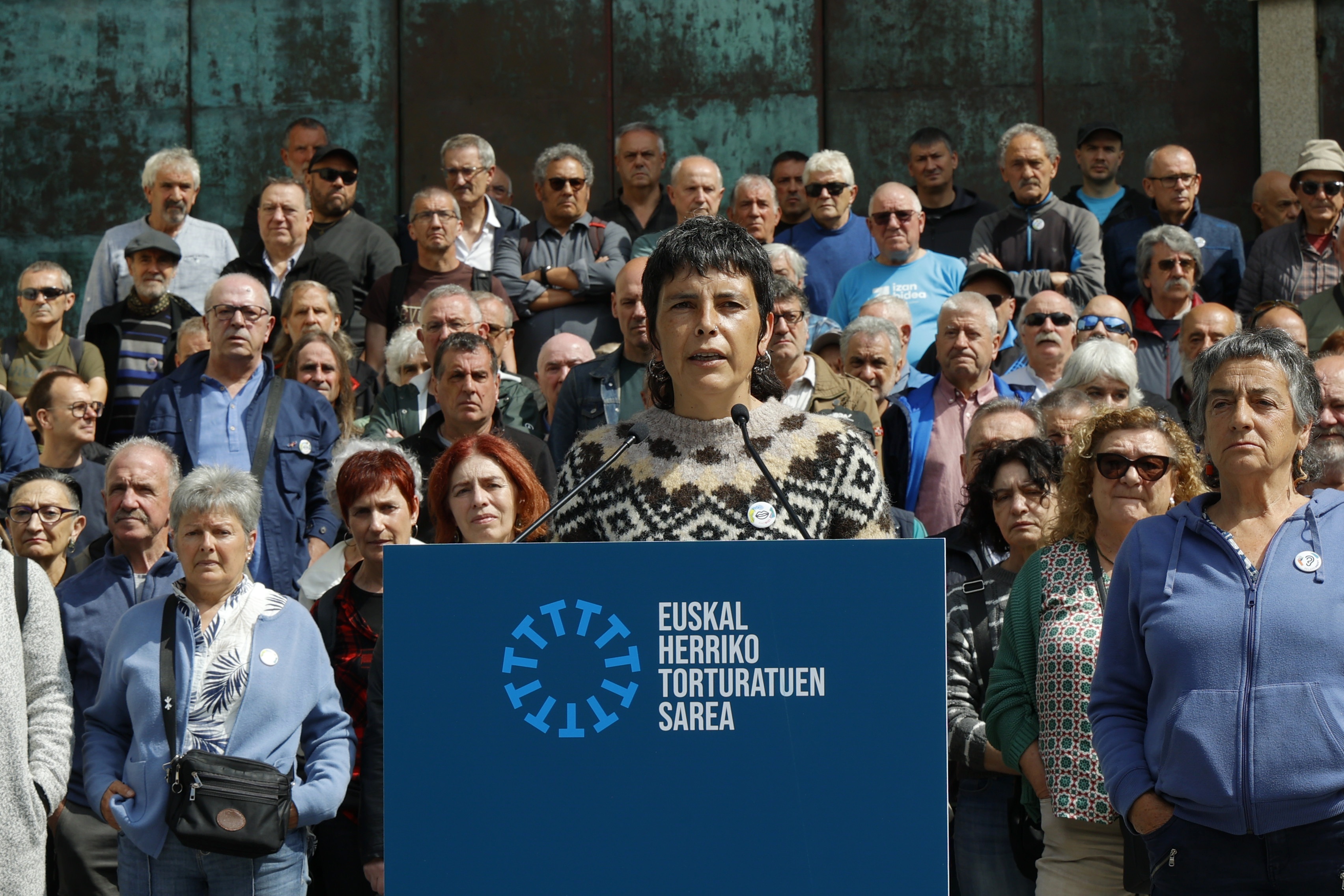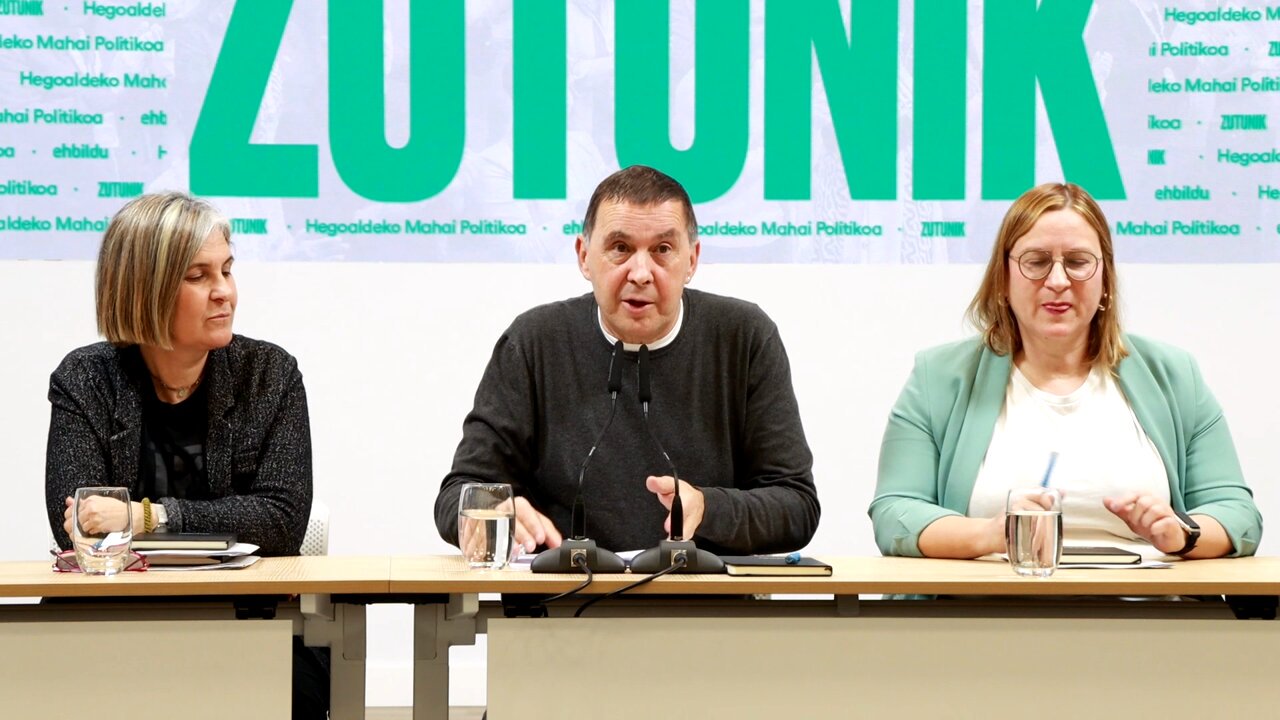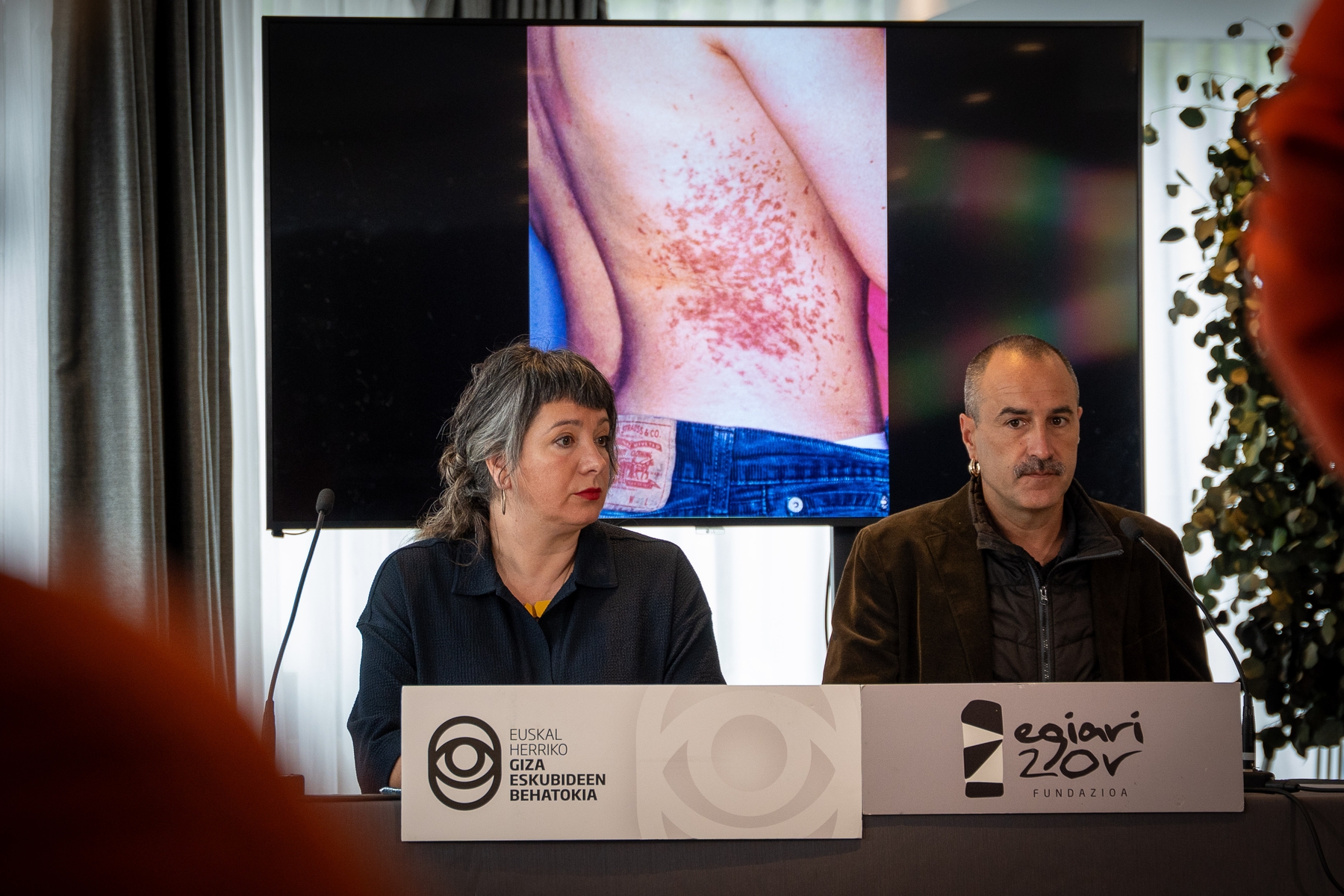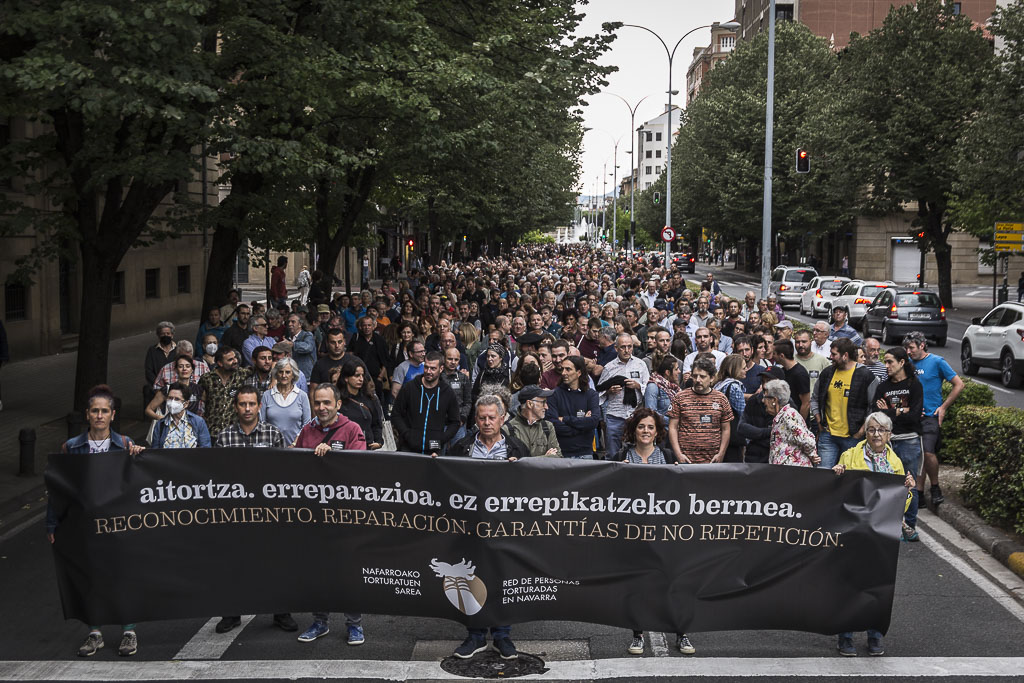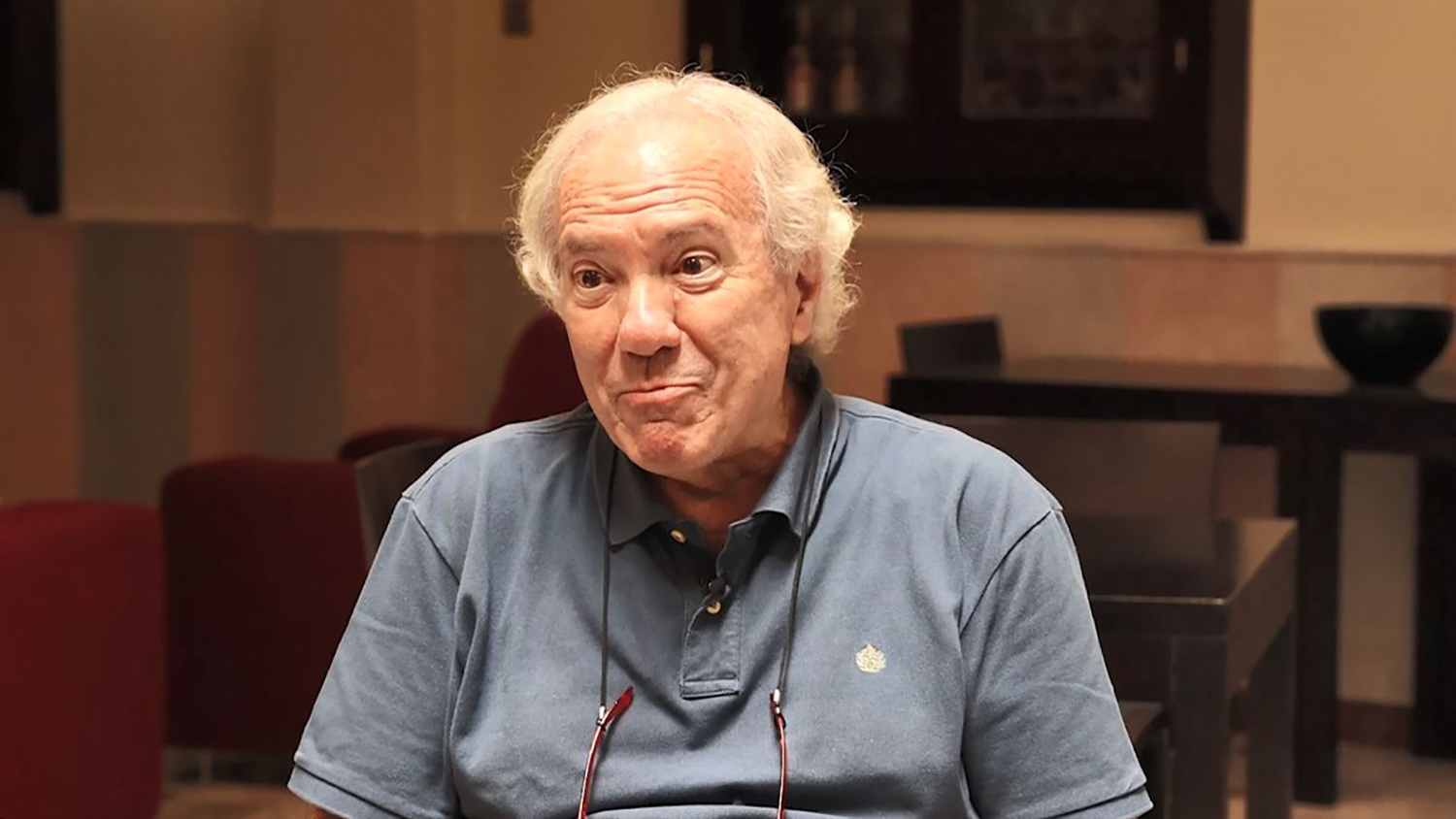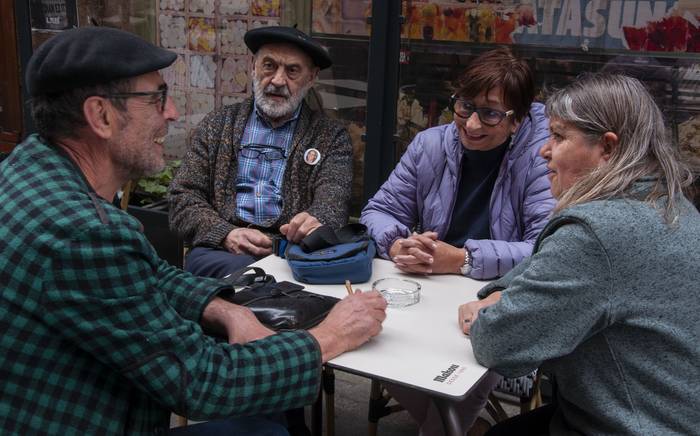"The case of Zabraise has become a reference to show what a part of Basque society has suffered"
- URL 0 publishes news of popular movements left on the edge or outside in hegemonic media. That's why power doesn't want it. He has been working in that spirit for over 20 years. Where is Mikel? He premiered the documentary. A work on torture signed by a tortured person.

Hainbat herri komunikabideren sortzailea eta kazetaria. Eguzki Irratian hasi zen kartzelaren inguruko Kateak apurtu irratsaioa egiten. Horren ildotik, beste hainbat kiderekin batera, 2007an Apurtu.org plataforma sortu zuen. 2011n hau itxi eta eragileak atxilotu zituzten. Urte eta erdira kartzelatik atera eta Ateak Ireki agerkari digitalean aritu zen, hura ere 2014an itxi arte. Orduan Ahotsa.info ikusentzunezko hedabidea sortu zuten eta hor ari da egun lanean.
Where does the passion for militancy come from in popular movements?
In the village, in Noáin, we noticed that we were missing something when we were young. For example, the Basque country had very little presence in the town and that is why the Night School emerged, which then became the engine of many other initiatives. There I began to learn Basque. Then, at the institute, in Pamplona, I met the input, the solidarity with the prisoners and the student movements, and I immersed myself in them. These were years of great tension and violence. At the age of 16-17, almost all my crew were arrested and tortured by the kale borroka. We freed ourselves a few, but we started to know very close what the dispersion is, the jail ...
Given the need for a space driven by the youth movement in the village, we began to organize the txosnas. At the time of maximum tension with the City Hall, in 1999, in the ETA truce, a councilor was put a bomb in his house. One of his sons belonged to our crew and we were accused of the attack, although we had nothing to do with it. When it happened, I was in class, another working -- but they stopped us. They also did everything very publicly. We were very identified in the village and the arrest was made in the sight of all and in front of the television cameras. For three days we were tortured non-stop. Their aim was for us to take this action and we could not give what they wanted.
How do you remember torture?
I mostly remember fear. Awesome. It was disappointing to know that I was alone and that I had no help from anyone. They were many and older than me, much more prepared than me. I knew what was going to happen and all those things happened successively: threats, blows, bag... I completely lost the notion of time. Even though we knew they stopped us one day, at 19, I was very weak to deal with all of this.
So did you prefer to plead guilty?
Yes. I thought I would then have the opportunity to prove that I didn't go. I was accused of a lot of things and asked for many years, but yet I was clear that I did not want to deceive anyone and I managed to do so in a kind of negotiation. I was happy and they got what they needed. We spent only ten days in prison. My teachers went to testify, saying that I was in class at the time of the attack, and a few days later they deposited a bond and went home.
I was very happy to go into jail and I was relieved when I discovered that we were only two in the crew. However, his presence in the young module of Alcalá Meco prison was impressive. We had a lot of fear because we didn't know that environment. We were princes and we weren't used to that atmosphere of violence.
It was a very media arrest because there was a great fading of anything that happened during the ceasefire. The people were broken.
Did you stop the second time at the UPNA?
Indeed. It was a day. I went to report a mobilization in favor of the Basque Country for Eguzki Irratia and ended up staying with them. Then the police arrived and a hundred people took us violently to the police station. It was a very hard night.
When I was younger, the police beat me twice in the Casco Viejo. I once caught a blow in my arm and was rushed to the hospital. I've always had bad luck, and that's why I've always believed that kale borroka isn't mine.
Was the third and final arrest in 2011 for the management of a website?
Yes. Apurtu.org . This happened eight days after ETA announced the end of its acts. Many media outlets re-recorded the arrest. We didn't know whether we would be tortured or not. I was scared, but the treatment was right. I said I would not declare or denounce torture. I spent a year and a half in Soto del Real prison first and then in Valdemoro. Jail is always prison, but with age I lived differently. I felt more resources to manage the situation differently. I took the time to study and do sport. We had no problem with ordinary prisoners. In the interior there are often tensions over drugs or tobacco, of which we were independent. In addition, they were flirting with us when we told them that we were working on a website, a media outlet. We have not killed anyone, we have not touched a weapon all our lives and were surprised.
In the end, we were brought out without trial by internal conflicts of the National Court. I would say that I am lucky in that sentido.Hemos internalized, in some way, that militants with political commitment on the Abertzale left are going to go to jail, but that's not a place for anyone and it leaves you a profound footprint for your whole life.
.jpg)
"We've internalized that the militants on the Abertzale left are going to go to jail, but that's not a place for anyone and it leaves you a deep footprint for your whole life."
Why are the public media needed?The things that
are done in popular movements often do not reach the mainstream media, so we have to cover those gaps with the local media. In order to do this, we need local media of different origin and composition. Euskalerria Irratia is not the same as Eguzki Irratia. It's not the same LIGHT as URL 0, and that diversity is very enriching. Because what we have in Euskal Herria is terrible. In the rest of the Spanish State there are no such networks.
We focus on the popular movement, with very few resources. Currently, in Ahotsa.info, we only work two people and some volunteers and we reach where llegamos.Nuestra bet is the video format from the beginning so that people can see with their eyes and images what happens in Navarra.
Have you had a lot of trouble with the Mozal law?
A lot, the verdad.Saben very well how to limit the work of entrepreneurs. If you wish to perform an act on the street, you must submit your request within 10 days and search for any cause to indicate that you are committing an offence or administrative misconduct. And they have also limited the right to information. You can question your version through images, as happened in the case of Altsasu, which you wanted to end with. We have had many fines for recording the Police's performance. Their aim is for us to censure cars and we have decided that we will not fall into that. In some cases we have won and in others we have had to pay fines. We still have some to pay.
What do you think about the changes to this law that are going to be done now?
I do not think they will change too much, because it is always good for the state to have a repressive apparatus. Our strength is in people's response. Depending on the greater or lesser public response to which the fine is charged, action is taken accordingly.
But we decided that we would not be a kamikazes because we cannot bear too many fines, but that we would try to show reality without censuring ourselves.
Where do they get the money from?
We have partners and offer audiovisual services to our customers. In addition, we received the help of Euskarabidea for his work of journalism in Euskera and we looked for extra money sources for concrete projects, where is Mikel? for the documentary, for example. In any case, ours is an activity centered on militancy.
Where is Mikel? Have you written with the documentary a final version of these events? Relatives
say that there is a document that reflects its version. The response of the people has been enormous: in the commercial halls they have seen 16,000 people; we have approached the programs in small towns and halls another 5,000; in TV3 they have been 359,000 spectators; and now, recently, it has been broadcast by ETB, and 12,000 spectators have seen it live, that day it was the day that had the largest number of viewers outside the news outlets.
The truth is that it is a job well done, but we have also been lucky in our favour. It premiered with great impact at the San Sebastian Film Festival. Then we had the opportunity to reach movie theaters during the pandemic, when there were not many new commercial films.
On February 13 he died [Enrique Rodríguez] Galindo, the same day against torture in Euskal Herria, and then came our premiere. In addition, before presenting the film, the author Público published the dialogue between former CESID colonel Juan Alberto Perote and the captain of the Civil Guard, Pedro Gómez Nieto, in which they recognized that Mikel Zabraise died of torture.
Why didn't you put that audio in the movie?
We had doubts, but in the end we decided to give them to a powerful media to spread them. The media came from all over the state. People were asking us when we had that, and I was telling them that it was years that I had that at home, that at any time anyone else was not going to leave with fear.
Family members have often said that their goal is not to send anyone to jail, but that everyone knows what really happened. And I think we have succeeded. The case of Mikel Zabraise has become a reference to show what a part of Basque society has suffered. Our other aim was to put the issue of torture back on the table, and that too has been achieved. It should be remembered that since 2011 no cases of torture have been reported in the Basque Country. Torture for young generations is an old issue and we are achieving a strong social movement against torture, demanding recognition and reparation.
What else have you asked a documentary in this regard? We have managed to mobilise beyond social debate. A few days after the audios, 3,000 people took to the streets in Pamplona against torture.
.jpg)
"The spaces for participation have been greatly narrowed and society is increasingly individualistic. For all these reasons, I believe that the young people who move have a lot of merit because everything is against it"
How does the newly established Navarra Network of Torturados evaluate?
Sometimes we find it difficult to measure the facts. The previous government launched several initiatives on memory and research, but now there is the PSN in the government, and being in the presentation of the Tortured Network, somehow the PSN accepts that it also be investigated. Surely they want the dossier to be kept and passed without lifting the dust. I do not think they give it the dimension that the Basque Government gave it, but nevertheless, in Navarre there is now a strong popular movement that requires independent scientific research. We citizens will try to do what public institutions do not.
What is being done in the field of relations is also very important. The association has spoken with all the political forces and I believe that in the future we will reach some consensos.Tambialso a wide request has been made for the declassification of documentation. We may not agree on names or descriptions of events, or on specific numbers, but today few can deny that torture has taken place here. And that torture has been something systematized, that was prepared: there was a law that allowed torture, some judges and forensics looked elsewhere ... This cannot be denied.
How do you see youth? The present and future of popular movements?
I believe there have always been young people involved and very passive. It is now said that young people are moving little, but it must be borne in mind that their demographic weight has fallen considerably. And along with this, it must be pointed out that young people have been hit hard to remove any idea of dissent from their heads. The spaces for participation have been greatly narrowed and society is increasingly individualistic. For all these reasons, I believe that the young people who move are very worthy, because everything is against it. And with the pandemic they have made it even more difficult in the last two years.
What fascinates me now is the movement feminista.El feminism has been put on the agenda and are being given great avances.Tambi in the culture very rapid movements are taking place and are young with a great formation, but their demographic weight is decreasing.
In any case, I believe that we should not be so obsessed with youth to change the cosas.Los political and social movements must take into account the people of 40-50 years, because we can get involved in our areas doing a lot of things.
Look at pensioners, if not.
Indeed. That is clear. There is a generation that made great improvements by working hard, also at the end of the dictatorship, and now they do not want to lose it. These are people who have always been fighting. Few jokes with them.
Historically, a court of the Spanish Monarchy passed the following resolution: "The officers in charge of the custody of Iratxe Sorzabal applied electrodes to force him to testify, which constitutes a flagrant violation of his fundamental human rights." In other words, after the... [+]
Oraingoz Nafarroan, 53 izango dira estatuaren biktima aitortuak eta horietatik 27 torturaren biktimak. Floren Beraza, Txaro Buñuel, Cecilio Ruiz, Patricia Perales eta Izaskun Juarez dira aitortutako torturatu berriak.
Felipe Gonzálezen garaian Espainiako Barne ministroa zen José Barrionuevoren aurkako kereila aurkeztuko dute, Ipar Euskal Herriko errefuxiatuen aurka abiatu zuen estrategiagatik. ZEN Zona Especial Norte Planaren barruan egindako ekintzen erantzule nagusietako bat... [+]
MARTA PIKAZA GARAIGORTA (Laudio, 1968) Euskal Herriko Torturatuen Sareko kideak eta eskualdeko beste torturatu batzuek ekin diote Aiaraldean ekimena antolatzeari. Egingo dituzten urratsak eta helburuak azaldu dituzte.
Euskal Herriko Bilgune Feministak deituta elkarretaratzea egin dute Hernanin Iratxe Sorzabali elkartasuna adierazi eta "babes osoa" emateko. Inkomunikatuta egon zen uneak berriz ere epailearen aurrean kontatu behar izatea, "bizi izandakoak utzitako ondorioen... [+]
For almost a century, there has been no generation in the Basque Country that has not known torture. There are 5,379 people officially since 1960, but there are many more, because appearing publicly as tortured still hurts. And probably because nothing has changed at the base... [+]







